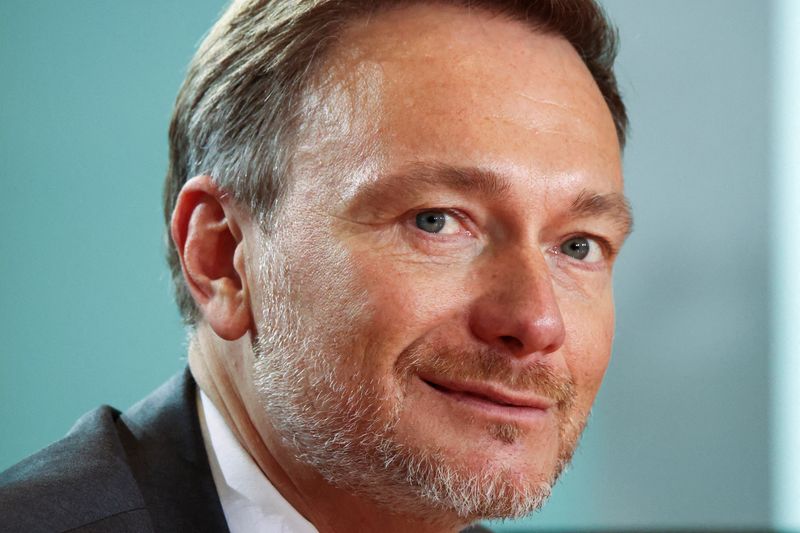BERLIN (Reuters) - German Finance Minister Christian Lindner insisted on Friday that EU deficits must be controlled when reforming the bloc's fiscal rules, a stance analysts said might help his case for spending cuts at home to resolve Germany's own budget crisis.
European Union finance ministers moved closer to an agreement on new EU fiscal rules early on Friday after hours of talks, but will need more time and possibly another meeting to reach a deal.
The main issue left to agree between Paris and Berlin is how quickly a country with a deficit above the EU limit of 3% of GDP should cut it, while at the same time having enough money to invest and reform.
"Excessive deficits have to be reduced, not to be excused," Lindner said after the talks in Brussels, expressing his worries about the corrective arm of the fiscal rules, known as the Stability and Growth pact.
Lindner said Germany and France are now 92% in agreement on the new fiscal rules, and he highlighted "a very positive atmosphere" in the talks.
"Unlike a few months ago, it is now widely accepted that we need clear safety lines for the deficits and for debt reductions," Lindner said, noting that technical work still needs to be done.
Analysts said a deal soon on EU fiscal rules would be a victory for Lindner, leader of Germany's fiscally conservative Free Democrats, as the current EU proposal broadly reflects Berlin's position.
"Ultimately the German position, or I should say Lindner's position, has prevailed for the most part," said Marcel Fratzscher, president of the economic institute DIW Berlin.
Such a deal in Brussels would strengthen Lindner’s hand slightly further in budget negotiations at home, Berenberg's chief economist Holger Schmieding said.
"It would be a personal success for him, allowing him to say that he is ready to compromise within the realm of what is possible," Schmieding told Reuters.
DEBT BRAKE
Germany's coalition parties are haggling over how to fill a 17 billion euro gap in the 2024 budget after the country's top court threw out the government's previous plan.
There is no agreement on whether the constitutionally-enshrined debt brake should be suspended for a fifth year, or if there should be spending cuts or tax increases.
A failure to clinch a deal at the EU level could be used by others at home to show that Lindner is not pragmatic enough, Schmieding noted.
Without a deal on the EU stability pact, Lindner would find it harder to defend imposing the debt brake for 2024, which restricts Germany's public deficit to 0.35% of gross domestic product
Chancellor Olaf Scholz of the Social Democrats (SPD) and Economy Minister Robert Habeck of the Greens want the debt brake suspended again in 2024.

"Lindner’s power in the domestic discussion about the fiscal policy changes in response to the constitutional court derives from his and his party’s stern stance that there will be no tax hikes and no changes to the debt brake rules," said Oliver Rakau, chief German economist at Oxford Economics.
This is non-negotiable for him, at least so far, and the perception is that he and his party might be willing to leave the coalition over that stance, Rakau said.